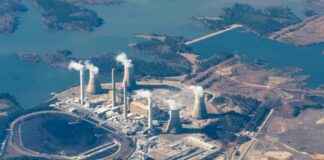After reading the article on the approval of a new deepwater oil export terminal off the Texas coast, it is clear that the Trump administration is moving forward with its agenda to bolster American crude production and exports. This decision defies international agreements aimed at reducing carbon emissions and combating climate change, reflecting the administration’s focus on the growth of the oil and gas sector.
The GulfLink oil terminal, approved to load up to 1 million barrels per day for export overseas, marks a significant step in expanding American energy revenue and unlocking vast oil resources. This terminal will join the Sea Port Oil Terminal, which remains unbuilt, emphasizing the administration’s commitment to dominating the global oil market.
Environmental and Economic Implications of the Approval
The approval of the GulfLink terminal has sparked mixed reactions from various stakeholders, particularly environmental groups who raise concerns about increased reliance on fossil fuels and its impact on global climate and marine ecosystems. Despite these concerns, proponents of the project argue that the offshore terminal offers a more efficient and less polluting alternative to existing onshore terminals, highlighting technological advancements to mitigate emissions during the loading process.
According to Sentinel Midstream, the company behind the GulfLink proposal, the terminal’s construction will lower the cost of exporting American crude oil, potentially disrupting relationships with oil-producing countries known for exerting political influence through their reserves. However, the project is not without its challenges, as evidenced by opposition from local communities such as Jones Creek and Surfside Beach, citing issues related to pollution, infrastructure, and emergency response.
Expert Insights and Future Outlook
Charles McConnell, a former U.S. Department of Energy official, emphasizes the need for more offshore terminals to accommodate the increasing volume of fracked oil from regions like West Texas. He underscores the strategic significance of oil exports in enhancing American geopolitical influence, a sentiment echoed by the Trump administration’s pro-export stance.
Anas Alhajji, a managing partner at Energy Outlook Advisors LLC, predicts that the continued rise in shale production will drive export growth, necessitating additional infrastructure development along the Gulf Coast. While the U.S. has become a major player in the global oil market, its export capabilities are still limited, underscoring the importance of projects like the GulfLink terminal in facilitating future growth.
In conclusion, the approval of the GulfLink oil terminal represents a pivotal moment in America’s energy landscape, balancing economic opportunities with environmental concerns. As the nation navigates the complexities of energy policy and climate change, the decisions surrounding oil infrastructure projects like GulfLink will shape the trajectory of U.S. energy exports for years to come.














